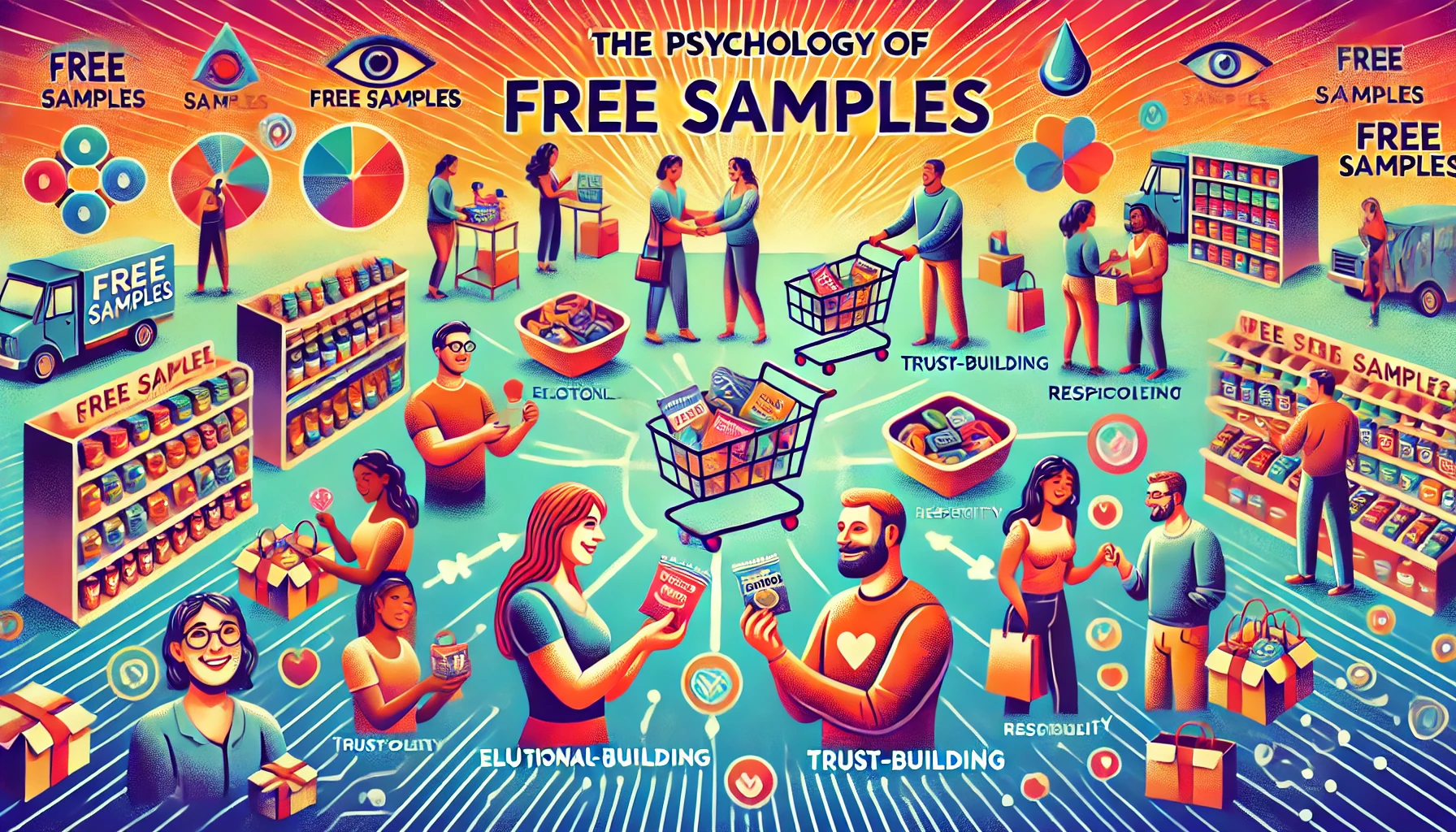
The Psychology Behind Free Samples: How They Influence Purchase Decisions
Introduction
Free samples have long been a powerful marketing tool, and for good reason. Offering consumers a risk-free opportunity to try a product taps into various psychological principles that drive purchasing behavior. Understanding the psychology behind free samples can help brands create more effective marketing strategies that influence purchase decisions and boost customer loyalty.
1. The Reciprocity Principle
The principle of reciprocity suggests that people are more likely to return a favor after receiving something of value. When consumers receive a free sample, they often feel a subconscious obligation to reciprocate by making a purchase. This sense of reciprocity increases the likelihood of conversion and enhances brand perception.
2. The Endowment Effect
The endowment effect is the tendency for people to place a higher value on items they own or experience. When consumers receive a free sample, they form an emotional connection with the product, making them more likely to purchase it. This sense of ownership increases perceived value and boosts the desire to buy.
3. Reducing Perceived Risk
Trying a product before purchasing eliminates uncertainty and reduces the perceived risk associated with buying a new item. Free samples allow consumers to experience the product firsthand, building trust and confidence in the brand, which increases the likelihood of purchase.
4. Creating Positive Associations
Free samples create positive associations with a brand by offering an enjoyable and risk-free experience. Consumers are more likely to develop favorable attitudes toward a brand that provides them with something of value, leading to increased brand loyalty and repeat purchases.
5. Building Trust and Credibility
Sampling builds trust by demonstrating product quality and reliability. When consumers can test a product themselves, they gain confidence in its effectiveness. This trust translates into increased brand credibility and stronger customer relationships.
6. Encouraging Word-of-Mouth Marketing
Satisfied consumers who receive free samples are more likely to share their positive experiences with friends and family. Word-of-mouth marketing generated through free samples can significantly expand a brand’s reach and attract new customers.
7. Creating a Sense of Urgency
Limited-time offers or exclusive free samples create a sense of urgency, prompting consumers to take immediate action. This urgency taps into the fear of missing out (FOMO), motivating consumers to make a purchase decision quickly.
Conclusion
The psychology behind free samples is rooted in powerful behavioral principles that drive consumer behavior. By leveraging reciprocity, reducing perceived risk, and building trust, brands can influence purchase decisions and foster long-term customer relationships. Free samples not only enhance brand perception but also create a pathway for increased sales and customer loyalty.